contents
PART ONE:
1:
2:
3:
PART TWO:
4:
5:
PART THREE:
6:
7:
8:
INTRODUCTION
 You thought you were prepared. You did all the prenatal things you were supposed to, from taking vitamins to practising yoga and taking birth classes. You read all the books, chose a theme for the nursery and stocked up on an alarming amount of baby necessities from diapers to nasal as pirators. But as your due date drew near, you started to freak out about actually having this baby. Perfectly normal. Many mums, not surprisingly, fixate on the whole pain-of-childbirth thing, which can overshadow thoughts of the early days with your baby. But childbirth, as painful and protracted as it may be, doesnt last more than a day or two.
You thought you were prepared. You did all the prenatal things you were supposed to, from taking vitamins to practising yoga and taking birth classes. You read all the books, chose a theme for the nursery and stocked up on an alarming amount of baby necessities from diapers to nasal as pirators. But as your due date drew near, you started to freak out about actually having this baby. Perfectly normal. Many mums, not surprisingly, fixate on the whole pain-of-childbirth thing, which can overshadow thoughts of the early days with your baby. But childbirth, as painful and protracted as it may be, doesnt last more than a day or two.
The early days of parenthood, on the other hand, threaten to never end. Youre beyond exhaustion and you wonder if your babyand consequently youwill ever sleep for more than two or three hours at a stretch. (Dont worry, you will!) And you worry. You worry that you havent bonded with your baby, because despite what the books say, you cant seem to distinguish between her different cries. Youre sure that the contents of the diaper youre changing cant possibly be normal. You worry about your babys growth and progress, compare her development to that of the other babies in your mums group, and wonder how some other mothers seem to have time to apply mascara when you havent even mastered the art of applying diaper cream.
And then theres breastfeeding, which brings a whole different set of worries and challenges. Why is it that something thats supposed to be so natural doesnt necessarily come so naturally? Do you have enough milk or too much? Does your baby nurse too frequently or not frequently enough? My first daughter refused point-blank to nurse. Shed shriek angrily at the merest whiff of a nipple, as though I were offering poison rather than breast milk. Ive never seen anything like this, announced the mystified lactation consultant I visited. But I was determined to breastfeed. Breast milk was, after all, best. All the experts recommended exclusive breastfeeding for six months, and my milk was brimming with long-term health benefits for my baby (and dont think thoughts of increased weight loss hadnt entered my mind). So, I rented an electric breast pump and spent many hours boiling bits of pumping paraphernalia while the rest of my household slumbered. We fed my daughter my milk with spoons, syringes, cups, and finally, despite my fears of nipple confusion, bottles. Mysteriously, when she was three and a half weeks old she took the breast and never looked back.
My trials and tribulations meant I amassed quite the extensive breastfeeding library. In one book by the well-known Dr. William Sears, I discovered a list of nutrient-dense, more bang-for-your-buck foods for breastfeeding mothers. Despite all my reading and preparation for motherhood, it wasnt until I came across this list that I twigged to the fact I was still eating for two. I knew that what I ate would flavour my breast milk, and that I needed to stay well hydrated and eat more than I had pre-pregnancy but Id never really considered how much my diet would affect my babys growth and development or my health and energy. Great. Now I had something else to worry about. Was my baby getting enough of the vitamins she needed? Would her IQ be forever affected if I didnt eat enough fish or flaxseeds? If I existed solely on fast food would my breast milk still be better for my baby than formula? And how exactly did I go about feeding myself so I could feed her better?
Most books Id read recommended that a nursing mother continue to eat as healthily as she had done while she was pregnant. Easier said than done. In those early hazy days of new parenthood, we were subsisting on freezer meals, takeout, and dinners my mother brought over. Not a recipe for long-term success (but awfully nice while it lasted). What I needed was more than just advice on the kinds of foods I should be eating. I needed some sort of sense of how exactly a new mum can still manage to eat healthily while caring for a newborn. How do you carve out time to cook and eat when you dont even have time to empty the dishwasher? There didnt seem to be anything out there to help me figure all of this out. And my need was increasingly desperate. Rifling through the kitchen cupboards at three in the morning trying to find something to eat that wasnt toast or chocolate seemed crazy. My husband and my two-month-old daughter were both sound asleep, but my desperate need for food was outweighing even my desperate need for sleep. I just wanted something, anything, healthy to fill the enormous and permanent hole that seemed to have taken up the space recently vacated by my baby. As I wolfed down yet another bowl of cold cereal, I wished my prenatal classes had covered eating with a newborn and stressed more firmly the importance of stocking your freezer with more than a few frozen meals. I wished Id had some inkling of how hungry Id be, how my diet would affect my energy and my breast milk, how eating well would help with the transition into motherhood, and, quite frankly, how much help Id need. I realized I really needed a guide to stocking my pantry with handy snack foods and ingredients for quick meals. I needed a set of healthy recipes that would be fast to make and easy to double and store in the freezer. I needed reliable, uncomplicated, up-to-date nutritional information. I needed to know that if ever there was a time to ask for help and to be specific in what I neededlike washing the dishes or cleaning the bathroom or bringing over dinnerthis was it. And I needed to know that sometimes, no matter how good my intentions and how well stocked my pantry, there would be circumstances that would call for a guilt-free chocolate bar, a big bowl of chips, or a glass of wine. And if I needed this, surely other mums did too.
I started to poll my new-mum friends. Had they heard of this list of foods that were considered optimal for breastfeeding? Were they following any dietary recommendations? New mums today are overwhelmed with the pressure to give their babies every advantage from breast milk to organic-cotton onesies to infant flash cards. Worrying that they too were missing some crucial piece of the mummy puzzle, my friends jumped onto the worry wagon with me. Would I e-mail them the list? What else should they be eating? I began to interview dietitians and lactation consultants. I became a regular on the Health Canada and American Academy of Pediatrics websites. I also became the go-to girl for my friends and their friends with breastfeeding questions, and in turn they shared with me their tips and tricks for making life with a newborn easier. Slowly my idea for Healthy Mum, Happy Baby grew; it would be a cookbook for breastfeeding mums, but would also focus on helping make their lives just a little easier.
All the recipes in Healthy Mum, Happy Baby have been tested by real mums with real babies wailing, cooing, or even sleeping in the background. Most of the snacks are designed for one-handed eating to free up the other for breastfeeding, stroller pushing, or playing. The chapter on stocking your pantry is designed to help you fill up your cupboards pre-baby to help you make better food choices. Ive also provided a chapter on the basics of a healthy breastfeeding diet.


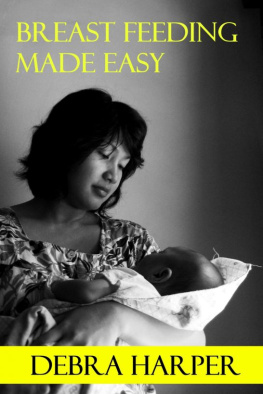
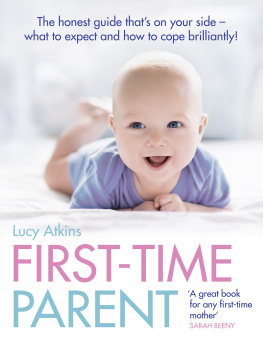
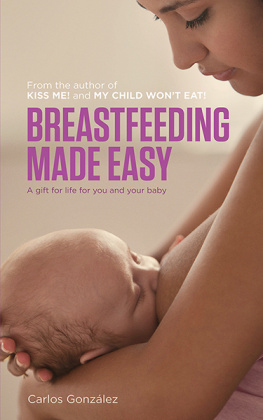
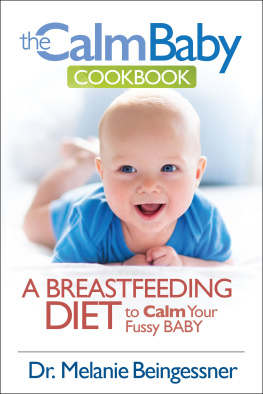
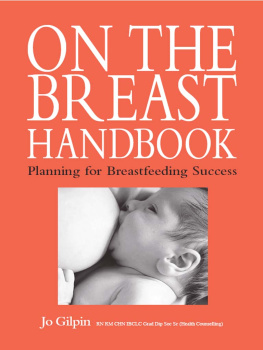
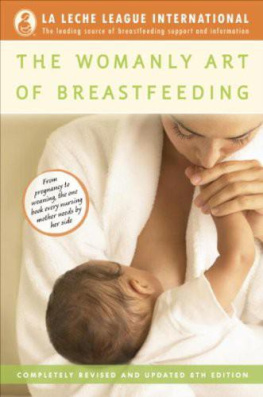
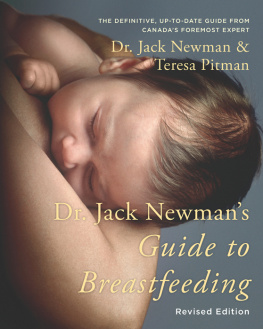
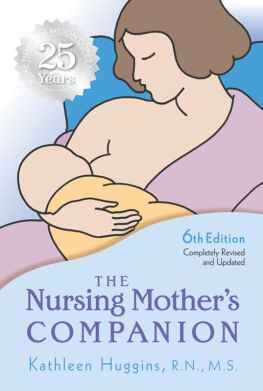
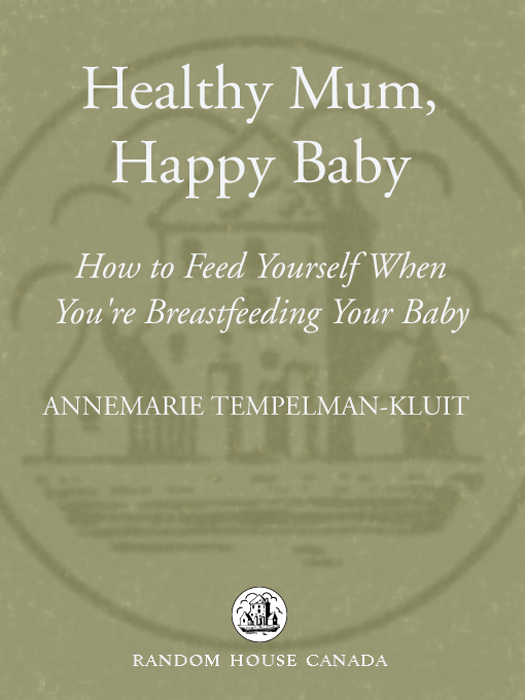
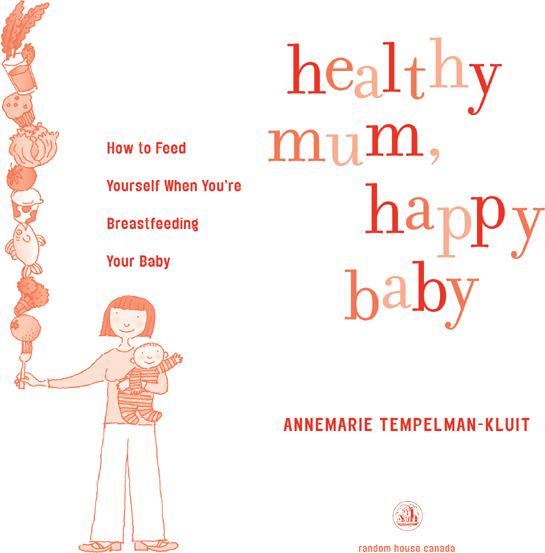
 You thought you were prepared. You did all the prenatal things you were supposed to, from taking vitamins to practising yoga and taking birth classes. You read all the books, chose a theme for the nursery and stocked up on an alarming amount of baby necessities from diapers to nasal as pirators. But as your due date drew near, you started to freak out about actually having this baby. Perfectly normal. Many mums, not surprisingly, fixate on the whole pain-of-childbirth thing, which can overshadow thoughts of the early days with your baby. But childbirth, as painful and protracted as it may be, doesnt last more than a day or two.
You thought you were prepared. You did all the prenatal things you were supposed to, from taking vitamins to practising yoga and taking birth classes. You read all the books, chose a theme for the nursery and stocked up on an alarming amount of baby necessities from diapers to nasal as pirators. But as your due date drew near, you started to freak out about actually having this baby. Perfectly normal. Many mums, not surprisingly, fixate on the whole pain-of-childbirth thing, which can overshadow thoughts of the early days with your baby. But childbirth, as painful and protracted as it may be, doesnt last more than a day or two.